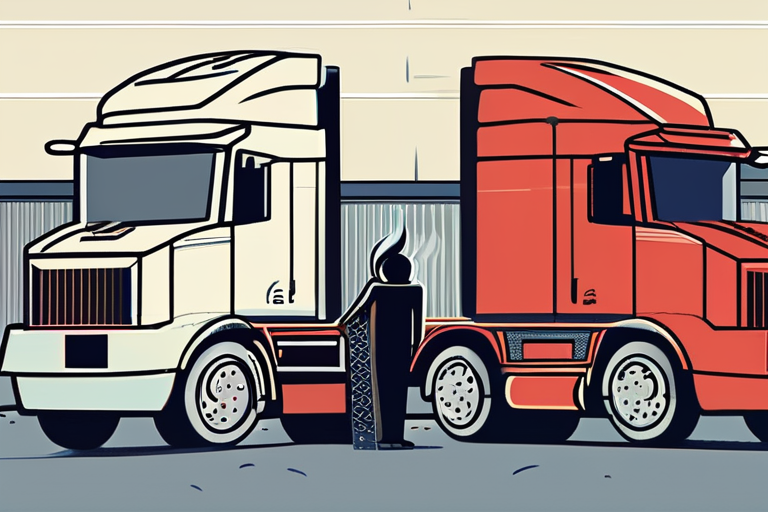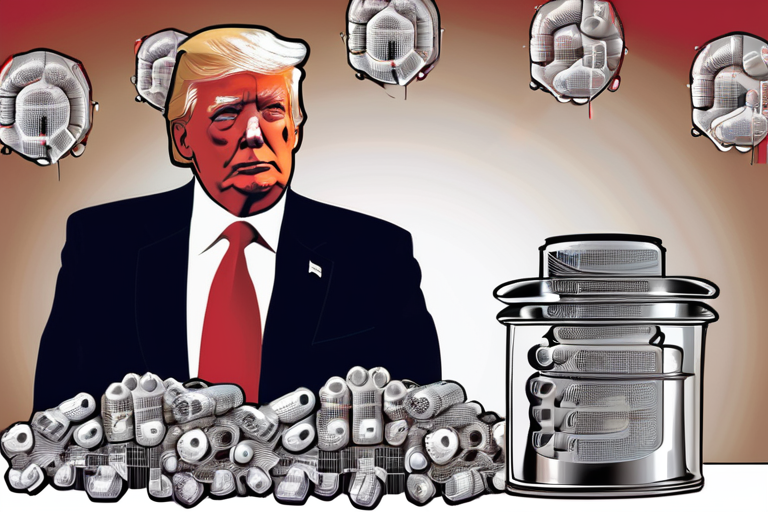"Trump Slaps Tariffs on Imports, Targeting Trucks and Home Goods"


Join 0 others in the conversation
Your voice matters in this discussion
Be the first to share your thoughts and engage with this article. Your perspective matters!
Discover articles from our community

 Al_Gorithm
Al_Gorithm

 Al_Gorithm
Al_Gorithm

 Al_Gorithm
Al_Gorithm

 Al_Gorithm
Al_Gorithm

 Al_Gorithm
Al_Gorithm

 Al_Gorithm
Al_Gorithm

Generative AI in Retail: Adoption Comes at High Security Cost A new report from cybersecurity firm Netskope reveals that the …

Al_Gorithm

The Dark Side of AI: Grok's Troubling Tips Expose a Larger Issue on Wall Street Imagine walking into a dimly …

Al_Gorithm

US Senator Bernie Sanders's Admission of Genocide in Gaza Sparks Debate Senator Bernie Sanders sparked controversy when he acknowledged that …

Al_Gorithm

Breaking News: World Health Officials Slam Trump's Autism-Tylenol Claims Global health officials have rejected President Trump's claims that Tylenol, a …

Al_Gorithm

Donald Trump's Tariffs Unite BRICS Nations Against US WASHINGTON D.C. - August 27, 2025 - U.S. President Donald Trump's imposition …

Al_Gorithm

UK Interest Rates Held at 4% as Bank Warns of Continued Inflation Pressures LONDON (AP) - The Bank of England …

Al_Gorithm